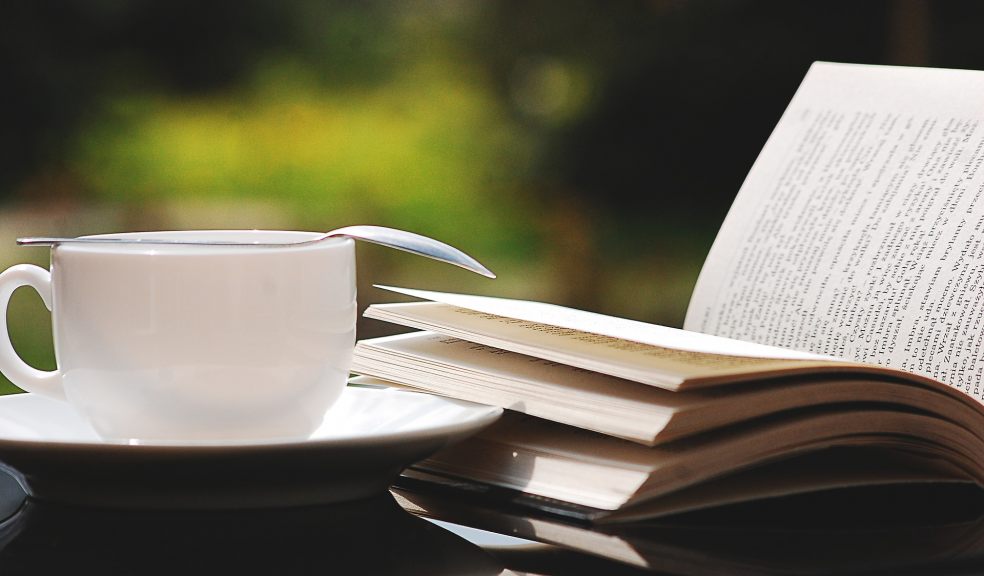
How to delve into a new literary genre
Trying out and experimenting with new things can be an exhilarating experience. Whether it be travelling to an exotic, unvisited land, finding a new recipe or picking up a book you’d never have considered before, it is these small happenings that can be life changing. Rather than stick with what you know, you should be putting yourself out there. Otherwise, you run the risk of never encountering something different and something that’ll alter your life emotionally, spiritually or even physically.
One easy way to open yourself up to new experiences is through literature. The notion of reading is mighty, with literature being greatly influential from ancient times to now, the present day. Its influence is yet to waver, as literature can be both political, mythical, fantastical and educational. It can breathe life into a person’s reality, and it can affect the masses. Whether it be poetry, prose, playwriting or screenwriting, the power of storytelling is ancient, but not archaic.
The history of literature is long. Before words and strung up sentences, it was spoken stories. Then it transitioned to tablets or paper, depending on culture and geographical location, and the first English novel is greatly debated – some say it’s Le Morte d’Arthur by Thomas Malory, while other claim it’s Don Quixote, Oroonoko or Robinson Crusoe. Whatever the answer, it does not truly matter; all that matters is the progression of literature and how the Romantic Period turned into Victorian Literature, and how it slowly transitioned into Realism, The Beat Generation, and then Modernism and Post-Modernism (the genre of today).
Delving into a new literary genre, though, can be difficult, even for the biggest of bookworms. Usually, we have a taste in what we like to read, and straying from familiarity can be tough. Why risk hating a book when we can stick to what we know? If everyone stuck to that mantra, then literature wouldn’t have adapted and it wouldn’t have remained so vital to our society. Before you explore and commit to a new literary genre, you must understand the variety out there. For those looking to step out from the comfort of their reading nooks, here are a few literary genres for you to discover.
Comedy
For those who love a good laugh, and who are looking for a novel that’s light-hearted, a good comedy book could be a great change of pace – especially if you’re someone who usually likes to read heavy fiction such as fantasy epics or the classics. When looking for a comedy, remember that there is usually two camps, fiction or a comedic novel written by a comedian. You should also research any comedy books and read reviews before buying, to determine the humour. Some novels will be more slapstick, while other will have a drier, more subtle humour.
Notable novels: The Hitchhiker’s Guide to the Galaxy by Douglas Adams, Fear and Loathing in Las Vegas by Hunter S Thompson, and Bossypants by Tina Fey.
Horror/Thriller
Horror isn’t everyone’s cup of tea, especially when it comes to horror films. Novels, though, are much different to the pictures on the big screen, and can be much more atmospheric and gothic than Hollywood’s depiction. The genre of horror is broad – you have the classics like Bram Stoker’s Dracula, or you have everything horror-legend Stephen King has ever written (notable King classic include IT, Misery and Carrie). Other notable horror novels include: The Haunting of Hill House by Shirley Jackson, The Woman in Black by Susan Hill, and Rosemary’s Baby by Ira Levin.
The thriller genre has had quite a glamorous makeover since the successes of The Girl with the Dragon Tattoo and the rest of the Millennium Trilogy, opening the flood gates to The Girl on the Train and Gone Girl. These crime-thriller hybrids are still proving popular, and there are many more authors trying their hand at becoming the new Paula Hawkins and Gillian Flynn. When choosing a thriller novel to try out, though, be wary. Picking up a worthy thriller novel can be difficult – the story has to be gripping, cohesive, methodical and exciting. There are many thriller novels that have fallen short.
Bildungsroman (Coming-of-Age)
The bildungsroman novel has proven popular over the years, with such coming-of-age classics being prominent throughout many centuries, with the genre’s general story of a young girl or boy transitioning into adulthood through psychological and moral growth. Usually, the protagonist is a sensitive individual in search of answers to life’s heavy questions.
The coming-of-age novel is incredibly widespread, with the works of Harry Potter falling into the bildungsroman category. You also have Charlotte Bronte’s Jane Eyre and J.D Salinger’s The Catcher in the Rye; you even have Harper Lee’s To Kill a Mockingbird, Haruki Murakami’s Norwegian Woods and Jeffery Eugenides’s The Virgin Suicides. Without fully knowing it, many people will have read countless coming-of-age novels.
Erotica
Erotica as a literary genre should not be confused with porn. There are many erotic stories dubbed as classics, which are famous for their explorations of human sexuality. In 1859, you had Gustave Flaubert’s Madame Bovary, and in 1960 D. H. Lawrence’s infamous Lady Chatterley’s Lover was finally published in the United Kingdom. Erotica has continued to be prominent in the world of fiction, covering a range of fetishes whether it be anal escorts, a sensual love story or diehard fans of the Fifty Shades trilogy. When picking up your first erotic novel, make sure you research online first, as there are many sub-genres of erotica for you to consider.
The Classics
Picking up a classic can be a daunting task. Usually, the novels are large and heavy; they are intimidating and the thought of reading archaic or old English can seem tiresome. The classics are classics for a reason, though. Of course, you don’t have to read them all, but by simply finishing a select few you can earn a huge sense of achievement (many classics are also on the 100 novels everyone should read list). To start with, think small. Charles Dicken’s isn’t the best novelist for beginners and can be quite off-putting; instead, think George Orwell, F. Scott Fitzgerald, Jane Austen and the Bronte’s. Slowly work your way from modernism, backwards. You’ll find that the more you read, the easier classic novel become.














